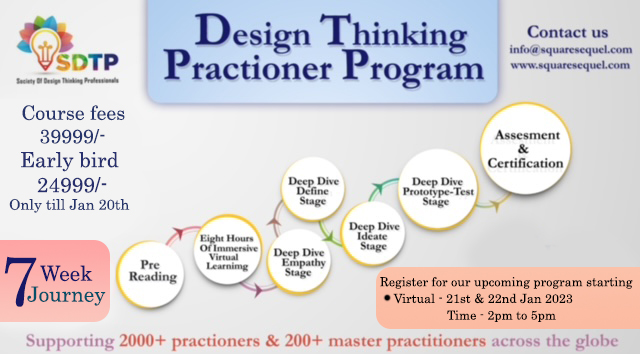One thing that Jahnvi loves about management is working with people and supporting them in their career and development progression. Since the time she joined the leaders’ clan in her organization, her intention is getting to know people and understand what drives them as an individual. Jahnvi came across a fascinating insight recently which led her to believe that fairness is at the heart of what it means to be a good leader. and she is assessing her cultural dimensions and the way they impact one’s decision-making abilities.
Jahnvi has covered a great length to transform herself into the great leader her team deserves and she has fortuitously understood the requisites of becoming a first-time manager, her values, locus of control, setting goals and achieving them, her learnings from The Strangest Secret, how to handle the missed goals, an overview of feedback, the gateway to discovering the blind spot, frameworks of feedback, the concepts of feedforward, the overview of the interpersonal skills, the techniques to enhance interpersonal skills, better team management using people reading guide, techniques to effectively manage a team, an overview of time management, the time management matrix, and the techniques to manage time effectively, the art of delegation, ways to consider capabilities of her team, the process to delegate effectively, and unconscious bias.
Jahnvi has recently understood that a bias can hinder an individual’s growth and productivity, affect morale, and confine talent retention. It has particularly taught her no matter what, she would not let her cultural dimensions affect her ability to be just in her decisions. Like any other individual, she has her cultural background and some thoughts and beliefs she holds onto.
She aimed at focusing on the problem at hand, rather than seeing it with the lens of transference – when a person looks at another person or event and associates it with a scenario from their past, and then makes decisions based on those memories, they are demonstrating transference by expressing their sentiments.
Leadership to her is different things at different times to different people. She is determined to refrain from letting those feelings sit at the table while she makes crucial decisions. She is still in a budding phase of learning how to be fair and unbiased, yet she is confident to be a just leader.
While she was doing her research on an unbiased approach, she found a study that provided clarity to her up to a great extent;
According to a study published in the Cornell Hospitality Report –
“The Changing Relationship between Supervisors and Subordinates: How Managing This Relationship Evolves Over Time” delves into a variety of topics, including how employee job performance, fairness perceptions, and supervisor-subordinate relationship perceptions change over time. Researchers Michael C. Sturman and Sanghee Park discovered that perceptions of fairness play a significant influence throughout an employee’s first year — a critical time for establishing expectations and needs for future job performance as well as the quality of the supervisor-subordinate relationship. However, the investigation discovered that this impact may fade soon. The manager’s emphasis on the employee’s performance becomes more important as time passes.
According to the study, supervisors will subvert their team’s effectiveness if they apply a static strategy to managing workers at various stages of the employee lifecycle. The supervisor-subordinate relationship is constantly changing. Building trust with employees initially, through actions such as fairness, will boost job performance and the relationship in the short and long run.
This insight invigorated her intention to be fair and just with her team and gave her a reason to learn everything she could about establishing an unbiased approach to encourage job performance and team spirit.
What Is An Unbiased Approach And Why Is It Important?

The criteria by which excellent judgment is utilized to establish the just treatment of employees in the workplace is the unbiased approach. Employee conduct and the work environment are used by managers to determine fair treatment.
In the workplace, an unbiased approach extends to how management handles their staff with respect and dignity. Peer interactions in the workplace are also included. Managers in fair workplaces treat professionals the same as their peers with similar skill sets, regardless of demographic status or relationship to other employees of the organization.
“Leaders who are successful participate in the talents and contributions of others in a highly principled and authentic manner.”
An unbiased approach is one of the most powerful aspects of a productive individual. It fosters coworker harmony, goodwill, and a sense of equity. A fair-minded leader learns about the team members’ abilities and talents and seeks to engage them. They aim to learn from as many people as possible.
It does not imply that everyone receives the same acknowledgment (job functions, promotion, pay raise, etc.), however, it does imply that everyone has an equal opportunity to be recognized. Fair leaders hold themselves accountable to be objective while dealing with situations that affect many people.
Unbiased leadership is vital in the workplace because it contributes to the development of a culture of inclusion and equality. Such leaders are sympathetic and approachable, stimulating innovation and creativity by allowing people to share their thoughts. Their open-mindedness contributes to a work climate in which everyone feels respected, listened to, and valued.
A leader demonstrates fairness by adhering to established norms and responding in a reasonable manner. They seek alignment among individuals and teams in order to achieve the greatest mutually beneficial outcomes. They interact with others without bias or judgment. They put their words into action.
Bias is thus a prevalent issue that affects decision-making in all facets of life. Addressing bias in the workplace is critical to fostering an inclusive culture, recognizing diversity, and encouraging open communication.
Addressing bias is one thing and overcoming the challenges to achieve an unbiased approach requires umpteen effort and practice. Jahnvi is on a roll to understand the challenges along the road.
Hiccups While Achieving an Unbiased Approach

Jahnvi is aware of the fact that creating an environment that is bias-free might be time taking as well as a hilltop journey at the beginning. As there might be setbacks on the way up, she decides to identify the challenges:
Unconscious bias
These are the biases that people are ignorant of; they manifest in the subconscious of individuals, making them difficult to identify and eliminate. According to Stacey A. Gordon’s book “UNBIAS: Addressing Unconscious Bias at Work,” unconscious bias is pervasive, subtle, and difficult to resist. Leaders may require training to identify their own unconscious biases.
Resistance to change
People dislike transitions. Leaders and other employees may be resistant to workplace improvements that encourage diversity and inclusion. Leaders must seek to foster a culture that appreciates these practices and promotes the benefits of diversity and inclusion to all stakeholders (including themselves!).
A lack of diversity
It becomes challenging for leaders to relate to or comprehend the experiences of personnel from various backgrounds when they lack diversity in the workplace.
Jahnvi admits that she has a bias, her goal is to identify the biases and blind spots to boost her personal growth. It’s long overdue that she exposes the behavior and creates an environment where everyone feels heard, understood, and can be productive at work. She knows it takes courage, humility, and vulnerability to admit the existence of the unbeknown and experiment with new behaviors.
Traits Of An Unbiased Leader

Unbiased leaders create an inclusive environment where their team members feel heard and valued. They treat every individual with fairness and respect. Here are the ways to be a fair and just leader.
Stick to the golden rule
Treat everyone you meet the same way you want to be treated. If you did not like how a manager handled you in the past, try not to behave like them.
Exemplify the rules and behaviors
You are being fair when you obey the rules and apply them equally to everyone. Make certain that you apply them to yourself as well. If your “do” does not match your “tell,” people will lose faith in you. Your employees will either emulate or despise your behavior as a boss and leader.
Many employees have spent their time at the bottom of the totem pole, witnessing their superiors’ actions. Too many managers take advantage of their position for the few extra privileges that employees do not obtain. When those individuals are given the opportunity to lead, they prefer to mimic what they see.
Excessive coffee and smoking breaks, as well as heading home early to attend to “family situations,” can breed animosity. Follow the same regulations and give yourself the same perks as your staff, or give them the same ones you do. This will transmit a message of equality throughout your organization.
Mold the rules as per the need
If you believe that the rules are being applied unfairly to individuals or groups, develop the guts to modify the rules. merely make sure that the reason you’re modifying it is to promote fairness, not merely to explain a result that may be better for a few people. Make certain that the new regulation is administered uniformly to everybody.
Be honest
You should make an effort to be truthful with your team. Explain to them why their work is done in the way that it is. Explain why a specific technique was implemented. Tell them you can’t talk to them about certain elements of work, but only if there’s a legitimate reason.
When leaders are truthful, it fosters an honest atmosphere in the company. This is an important aspect of employee/manager relationships. If neither party believes the other, a toxic working relationship develops.
Be considerate
When assigning work, consider not only whether you are doing it fairly, but also how employees will see it. Consider how it might affect them if you always allocate the less pleasant task to one person because they don’t complain about it. It may be preferable to alternate the less pleasant tasks so that everyone may participate in the fun.
Refrain from playing favorites
If you’ve ever worked for a boss who played favorites or held people to varying standards of accountability and performance, you know how damaging this is to morale.
Managers should strive not to refer to an employee as the “star of the show,” to treat them differently, and to continually praise them. Many managers use their star employee as an example for others to follow, leaving other employees feeling alienated and resentful.
Praise in public has significant advantages. If you appear to be consistently appreciating the same individual, you may need to spend your efforts on training and mentoring your other team members. It extends your attention to all of your employees and makes them feel valuable.
Fairness at work
When you treat your employees decently, they are more focused on overcoming the obstacles in front of them. They will establish trust in you as a boss if they feel valued and cared for. Employees concentrate on individual and group goals rather than gamesmanship or one-upmanship.
Two things happen when you treat others decently. Your employees notice and appreciate it. Your reputation for honesty strengthens their faith in you. Second, those who are treated honestly will reciprocate. You are teaching and modeling the behavior of “fairness” in the workplace through your actions.
Jahnvi is clear on understanding that credibility to her success as a leader is pivotal. She is aware that nothing destroys her credibility faster than the reputation that she deals with people on an inconsistent basis or plays favorites. She needs to be deliberate and even-handed about assigning tasks, sharing feedback, and offering appreciation. She knows the benefits of cultivating a reputation as a leader who deals with people honestly and fairly is immeasurable.
In the next article, she intends to cover various strategies to be an unbiased leader.
https://www.chieflearningofficer.com/2016/07/12/managers-show-new-employees-you-can-be-fair/
https://www.liveabout.com/fairness-is-good-management-2275883
https://legacycultures.com/dimensions-of-leadership-fairness/
https://www.speexx.com/speexx-blog/unbiased-leadership-possible/
https://hbr.org/resources/images/article_assets/2017/01/jan17-20-112239613.jpg
https://hbr.org/resources/images/article_assets/2022/02/A_Feb22_07_1310031204.jpg
Written By: Jimmy Jain
Edited By: Afreen Fatima
Society of Design Thinking Professionals









